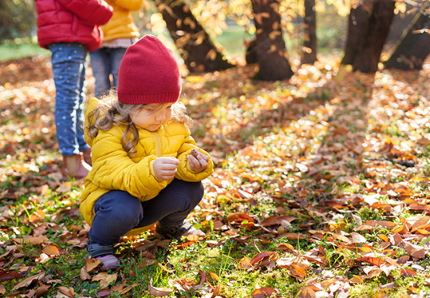
![]()
FOREST BATHING UPLIFTS MIND, BODY, & SPIRIT
Forest bathing, or shinrin-yoku, is the simple act of spending quiet time in the presence of trees and mindfully engaging all your senses with the environment that surrounds you. The effects on human health of this easy and enjoyable exercise are profoundly positive as you will read below.
Impressive Results From Scientific Studies
 Dr. Qing Li is the president of the Japanese Society of Forest Medicine, a pioneer of forest bathing research, and the author of Forest Bathing: How Trees Can Help You Find Health and Happiness. He describes forest bathing as the simple exercise of immersing oneself in the forest and soaking in the atmosphere through the senses.
Dr. Qing Li is the president of the Japanese Society of Forest Medicine, a pioneer of forest bathing research, and the author of Forest Bathing: How Trees Can Help You Find Health and Happiness. He describes forest bathing as the simple exercise of immersing oneself in the forest and soaking in the atmosphere through the senses.
Decades of research shows a wide range of benefits from forest bathing, including decreased stress, blood pressure reduction, improvement of the immune system, reduced fatigue, better brain function, reduced blood glucose levels, more energy and better sleep, alleviation of depression, and an upgrade in overall happiness.
Fast Fact
Leisurely forest walks, compared with urban walks, show a 12.4 percent decrease in the stress hormone cortisol, a seven percent decrease in sympathetic nerve activity, a 1.4 percent decrease in blood pressure, and a 5.8 percent decrease in heart rate.
 Though Japan pioneered the studies on forest bathing, research is ongoing today around the world. Visit the United States National Center for Biotechnology Information for accessing global research on this topic.
Though Japan pioneered the studies on forest bathing, research is ongoing today around the world. Visit the United States National Center for Biotechnology Information for accessing global research on this topic.
Dr. Li says he is most excited about his research on the effects of phytoncides on the human immune system. Phytoncides are the essential wood oils that create the aroma of a forest. Numerous studies have confirmed that exposure to phytoncides contributes to significant increases in human natural killer cells, a type of white blood cell that is known to boost immune function. Benefits can last up to a month after a forest bathing experience.
Fast Fact
After 20-minute walks in a city park, children experienced substantially improved concentration compared to 20-minute walks in downtown and residential settings. Researchers concluded that the positive results were comparable to the effects of Ritalin.
![]()
HOW TO DO FOREST BATHING
Where To Go Forest Bathing
Dr. Li says that you will experience the greatest benefits from forest bathing when you walk through densely treed areas, but your own garden or an urban park with plenty of trees will work, too. He says that it is best to seek a quiet atmosphere, beautiful scenery, gentle walking paths, mild weather, and a good smell.
Engage All Your Senses
Forest bathing is about being mindful of everything in the natural area that surrounds you. Minimize distractions and fully immerse yourself in the forest environment. Turn off your phone and stow it away. Walk slowly and stop often. Listen to the sounds of the forest and pay attention to the many elements in the scenery. Take slow deep breaths and smell the variety of aromas in the forest air. Touch the leaves and the bark of the trees. Lean up against a tree trunk, rest on a log, or sit at the base of a tree and close your eyes for a while. If it’s warm enough, take off your shoes so your feet can make direct contact with the earth. You can heighten your mindful awareness during your forest experiences by doing the simple meditation suggested by Micah Mortali in the video above. Read his inspiring book Rewilding for additional meditations to try during your forest bathing experiences.
Fast Fact
In a 2017 study on touching wood, it was found that touching wood with the palms of the hands calms prefrontal cortex activity in the brain more than other materials and induces physiological relaxation.
Perfect Timing
According to a study that was published in Frontiers in Psychology in 2019, if you spend 20-30 minutes with nature, even in an urban park or your own backyard garden, you will significantly reduce the stress hormone cortisol in your body, which benefits your heart health and more. If you follow Dr. Li’s advice and spend at least two hours in a treed area while mindfully engaging all your senses, not only will you improve heart health, you will measurably boost your overall immune function. This includes greatly increasing the production of NK cells (natural killer cells) that protect you from virus invasions and cancer cell growth. As a bonus, this boost in NK activity will last up to a month. You will also improve memory function and mental clarity, and you’ll come out of the forest in a much happier emotional state.
Can You Bring A Buddy?
Forest bathing can certainly be done with one or more companions, including your dog. If you are likely to spend more time in nature if you include a friend or your pet, definitely do that. Remember, though, that the purpose of a forest bathing experience is to fully engage your senses with the natural environment, so keep conversations focused on what you are seeing, hearing, and feeling in the forest and spend plenty of time with no conversation at all. If you bring your dog and find that this prevents you from fully relaxing and merging with the wonders of the forest, schedule separate times for walks with your dog.

